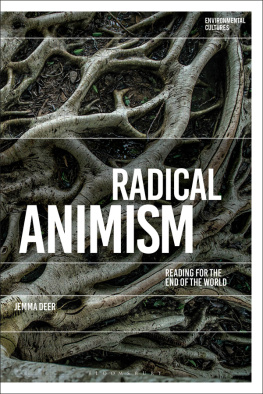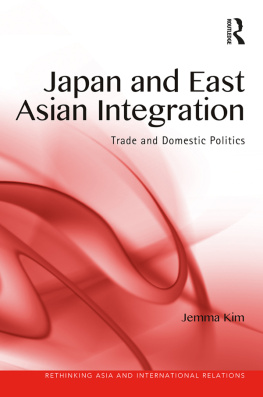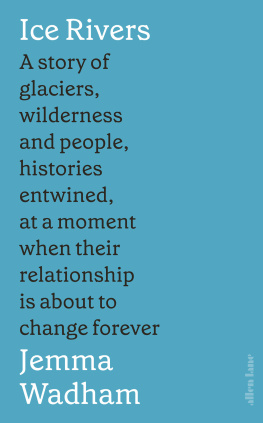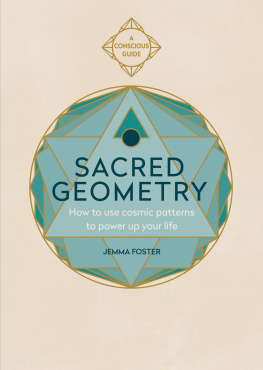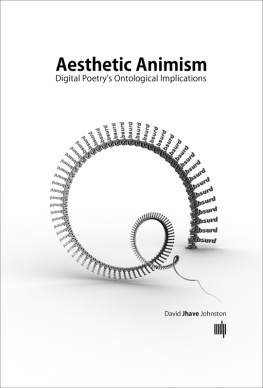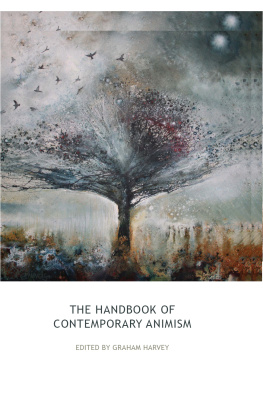Jemma Deer - Radical Animism
Here you can read online Jemma Deer - Radical Animism full text of the book (entire story) in english for free. Download pdf and epub, get meaning, cover and reviews about this ebook. publisher: Bloomsbury UK, genre: Romance novel. Description of the work, (preface) as well as reviews are available. Best literature library LitArk.com created for fans of good reading and offers a wide selection of genres:
Romance novel
Science fiction
Adventure
Detective
Science
History
Home and family
Prose
Art
Politics
Computer
Non-fiction
Religion
Business
Children
Humor
Choose a favorite category and find really read worthwhile books. Enjoy immersion in the world of imagination, feel the emotions of the characters or learn something new for yourself, make an fascinating discovery.
- Book:Radical Animism
- Author:
- Publisher:Bloomsbury UK
- Genre:
- Rating:4 / 5
- Favourites:Add to favourites
- Your mark:
- 80
- 1
- 2
- 3
- 4
- 5
Radical Animism: summary, description and annotation
We offer to read an annotation, description, summary or preface (depends on what the author of the book "Radical Animism" wrote himself). If you haven't found the necessary information about the book — write in the comments, we will try to find it.
Radical Animism — read online for free the complete book (whole text) full work
Below is the text of the book, divided by pages. System saving the place of the last page read, allows you to conveniently read the book "Radical Animism" online for free, without having to search again every time where you left off. Put a bookmark, and you can go to the page where you finished reading at any time.
Font size:
Interval:
Bookmark:

Radical Animism
Radical Animism
Reading for the End of the World
Jemma Deer

BLOOMSBURY ACADEMIC
Bloomsbury Publishing Plc
50 Bedford Square, London, WC1B 3DP, UK
1385 Broadway, New York, NY 10018, USA
BLOOMSBURY, BLOOMSBURY ACADEMIC and the Diana logo are trademarks of Bloomsbury Publishing Plc
First published in Great Britain 2021
Copyright Jemma Deer, 2021
Jemma Deer has asserted her right under the Copyright, Designs and Patents Act, 1988, to be identified as Author of this work.
For legal purposes the constitute an extension of this copyright page.
Cover design: Paul Burgess / Burge Agency
Cover image Shutterstock
All rights reserved. No part of this publication may be reproduced or transmitted in any form or by any means, electronic or mechanical, including photocopying, recording, or any information storage or retrieval system, without prior permission in writing from the publishers.
Bloomsbury Publishing Plc does not have any control over, or responsibility for, any third-party websites referred to or in this book. All internet addresses given in this book were correct at the time of going to press. The author and publisher regret any inconvenience caused if addresses have changed or sites have ceased to exist, but can accept no responsibility for any such changes.
A catalogue record for this book is available from the British Library.
A catalog record for this book is available from the Library of Congress.
ISBN: HB: 978-1-3501-1115-8
ePDF: 978-1-3501-1116-5
eBook: 978-1-3501-1117-2
Series: Environmental Cultures
To find out more about our authors and books visit www.bloomsbury.com and sign up for our newsletters.
Environmental Cultures Series
Series Editors:
Greg Garrard , University of British Columbia, Canada
Richard Kerridge , Bath Spa University
Editorial Board:
Frances Bellarsi , Universit Libre de Bruxelles, Belgium
Mandy Bloomfield , Plymouth University, UK
Lily Chen , Shanghai Normal University, China
Christa Grewe-Volpp , University of Mannheim, Germany
Stephanie LeMenager , University of Oregon, USA
Timothy Morton , Rice University, USA
Pablo Mukherjee , University of Warwick, UK
Bloomsburys Environmental Cultures series makes available to students and scholars at all levels the latest cutting-edge research on the diverse ways in which culture has responded to the age of environmental crisis. Publishing ambitious and innovative literary ecocriticism that crosses disciplines, national boundaries, and media, books in the series explore and test the challenges of ecocriticism to conventional forms of cultural study.
Titles available:
Bodies of Water , Astrida Neimanis
Cities and Wetlands , Rod Giblett
Civil Rights and the Environment in African-American Literature, 18951941 , John Claborn
Climate Change Scepticism , Greg Garrard, George B. Handley, Axel Goodbody and Stephanie Posthumus
Climate Crisis and the 21st-Century British Novel , Astrid Bracke
Colonialism, Culture, Whales , Graham Huggan
Ecocriticism and Italy , Serenella Iovino
Ecospectrality , Laura A. White
Fuel , Heidi C. M. Scott
Literature as Cultural Ecology , Hubert Zapf
Nerd Ecology , Anthony Lioi
The New Nature Writing , Jos Smith
The New Poetics of Climate Change , Matthew Griffiths
Reclaiming Romanticism , Kate Rigby
Teaching Environmental Writing , Isabel Galleymore
This Contentious Storm , Jennifer Mae Hamilton
Forthcoming Titles:
Cognitive Ecopoetics , Sharon Lattig
Ecocriticism and Turkey , Meliz Ergin
Eco-Digital Art , Lisa FitzGerald
Environmental Cultures in Soviet East Europe , Anna Barcz
Imagining the Plains of Latin America , Axel Prez Trujillo Diniz
Weathering Shakespeare , Evelyn OMalley
How ist with you,
That you do bend your eye on vacancy,
And with thincorporal air do hold discourse?
Shakespeare, Hamlet
Contents
I owe much to Nicholas Royle, who has been an inspiration since I was an undergraduate and later became a mentor and friend. This book would not have been written without his continued support. I am grateful to all the friends and family who sustained me over the years I was writing, especially Alex Casey, Hannah Geller, Reuben Golden, Jessica McDiarmid and Rachael Sergeant, who helped me through. There are too many others to name here; you know who you are. I am thankful to the English department at the University of Sussex, where I completed the PhD that was the roots of this project, and to the Harvard University Center for the Environment, where it grew to maturity. Special thanks to Mareike Beck, Sara Crangle, Joe Luna, Michael Jonik, Liz Walker and Di Yang who supported me over the years at Sussex (academically and otherwise), and to Sarah Wood for writing the book that encouraged me to begin this project and for giving the guidance that got me here.
This is for life.
Definitions and etymologies of words, unless otherwise stated, are taken from the Oxford English Dictionary Online .
Scripture quotations are from The Authorized (King James) Version. Rights in the Authorized Version in the United Kingdom are vested in the Crown. Reproduced by permission of the Crowns patentee, Cambridge University Press.
| A | Jacques Derrida, The Animal That Therefore I Am , ed. Marie-Louise Mallet, trans. David Wills (New York: Fordham University Press, 2008). |
| BPP | Sigmund Freud, Beyond the Pleasure Principle, SE XVIII. |
| GW | Sigmund Freud, Gesammelte Werke , vols IXVIII (London: Imago, 194052). |
| OED | Oxford English Dictionary Online (Oxford: Oxford University Press, 2019). |
| SE | Sigmund Freud, The Standard Edition of the Complete Psychological Works of Sigmund Freud , vols IXXIV, trans. and ed. James Strachey, in collaboration with Anna Freud, assisted by Alix Strachey and Alan Tyson (London: Hogarth Press, 195374). |
The following pages are concerned with animism or rather with animisms in the plural with the myriad activities and agencies of entities both organic and inorganic. Non-human and non-living forces act, create, read, write and respond in ways that have often been assumed to be exclusively human. In this age of climate breakdown, the disavowal of such forces is becoming increasingly difficult to maintain, as long-held scientific, philosophical and psychological paradigms are challenged by agencies beyond the human. I elaborate a radical new animism for a planet in crisis, recognizing the non-human powers that assert themselves around us, in us and through us. This is not an anthropological study; rather, this book is concerned with sketching a generalized rethinking of animism that is neither mystical nor primitive and that is attentive to forms of animism that are alive even in the most scientific or modern worldviews. I am also very much concerned with the animism of literature : the ways in which literary writing has a strange and active life that has the power to disturb, startle and transform the contexts in which it is received, the futures into which it is born. The work of Jacques Derrida, effecting as it does a sustained deconstruction of anthropocentrism, is essential to my thinking throughout.
My subtitle, Reading for the End of the World, should be understood in two ways. First, it can be read in an apocalyptic vein, as referring to the kind of reading that might be appropriate to this time of catastrophic climate change, a reading for the end of the world. Second, however, it can also be read in an affirmative tone. If we take the etymological sense of the word world as the age of man (coming from the Old Danish w r- ld , meaning literally man-age) and the word for in the sense of in defence or support of; in favour of, on the side of, this would be a mode of reading that is in favour of the end of the age of man a reading that is for the end of the w r- ld . To be clear, I am not advocating for the extinction of the human. On the contrary, I am recognizing that the future of human life in fact depends upon the end of a world in which human beings narcissistically act as if they are separable from or independent of other living things. The end of the w r- ld would be the beginning of a less destructive or pathological relationship between humans and the other forms of life with which we share this planet.
Next pageFont size:
Interval:
Bookmark:
Similar books «Radical Animism»
Look at similar books to Radical Animism. We have selected literature similar in name and meaning in the hope of providing readers with more options to find new, interesting, not yet read works.
Discussion, reviews of the book Radical Animism and just readers' own opinions. Leave your comments, write what you think about the work, its meaning or the main characters. Specify what exactly you liked and what you didn't like, and why you think so.

